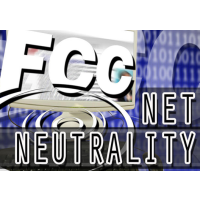FCC Votes 3-2 to Make Internet a Utility and Block State Laws Limiting Municipal Internet Services
 (AP Graphic)
(AP Graphic)
New rules approved by the Federal Communications Commission (FCC) Thursday will result in the Internet being treated like a utility under federal law and allow local governments to develop public high-speed online service.
The FCC provision receiving the most media attention was that establishing “net neutrality,” which will forbid Internet service providers from creating faster service for corporations, such as Netflix and Google, that can afford it while everyone else is left with slower speeds.
The FCC is implementing its net neutrality plan by “reclassifying high-speed Internet service as a telecommunications service, instead of an information service, under Title II of the Telecommunications Act,” according to The New York Times.
The agency, however, did not apply all of Title II to broadband, choosing a “tailored approach,” the Times’ Rebecca Ruiz and Steve Lohr wrote. For instance, the FCC said it will not regulate pricing or engineering matters for high-speed networks.
Broadband networks under development in cities got a boost from the FCC, which blocked attempts at the state level to prohibit municipalities from providing or expanding high-speed Internet access for their residents. That directly affected two cities—Chattanooga, Tennessee and Wilson, North Carolina—that had developed such networks but were prohibited from expanding them when their state governments enacted legislation at the behest of corporate Internet providers to prohibit municipal service. Those cities petitioned the FCC to have those laws superseded by federal regulation.
“By its action today, the FCC has empowered local North Carolina communities to do whatever it takes for all of our citizens to realize the benefits of access to essential Gigabit infrastructure in our beautiful state,” Wilson’s city government said in a prepared statement. “All possibilities are now on the table, whether through public-private partnerships or municipally-owned broadband networks, to ensure North Carolina’s businesses and residents remain competitive in the global economy.”
A coalition of cities working to provide Internet to their residents, Next Century Cities also praised the FCC decision to help local communities create their own broadband networks.
“Today the FCC stood behind local leaders in Wilson and Chattanooga and their call for local choice. But this decision is about more than these two communities—it is a major step forward for all communities seeking next-generation Internet to transform the way we learn, work, and live,” Deb Socia, executive director of Next Century Cities, said in a statement. “Choice and competition are key ingredients to broadening the reach and opportunities afforded by this vital infrastructure. This decision is a win for local choice and a win for competition. It sets a powerful precedent nationwide that cities should be free to choose when it comes to high-quality Internet.”
The new rules were approved by a 3-2 vote of the FCC, with three Democrats voting for the rules and two Republicans against. The U.S. Chamber of Commerce, along with cable companies and commercial Internet providers, fought the new rules.
-Noel Brinkerhoff
To Learn More:
FCC Approves Net Neutrality Rules, Classifying Broadband Internet Service as a Utility (by Rebecca Ruiz and Steve Lohr, New York Times)
Chattanooga, Tenn., and Wilson, N.C., Celebrate FCC’s Municipal Broadband Ruling (by Michael Grass, Government Executive)
Net Neutrality Upheld, FCC Split 3-2 (by Lorraine Bailey, Courthouse News Service)
FCC Approves Net Neutrality (by Allan Holmes, Center for Public Integrity)
FCC Advances Plan that Threatens Net Neutrality (by Noel Brinkerhoff, AllGov)
Ominous Ruling by Federal Appeals Panels Overrules FCC and Threatens “Net Neutrality” (by Noel Brinkerhoff, AllGov)
- Top Stories
- Unusual News
- Where is the Money Going?
- Controversies
- U.S. and the World
- Appointments and Resignations
- Latest News
- Trump Orders ICE and Border Patrol to Kill More Protestors
- Trump Renames National Football League National Trump League
- Trump to Stop Deportations If…
- Trump Denounces World Series
- What If China Invaded the United States?






Comments